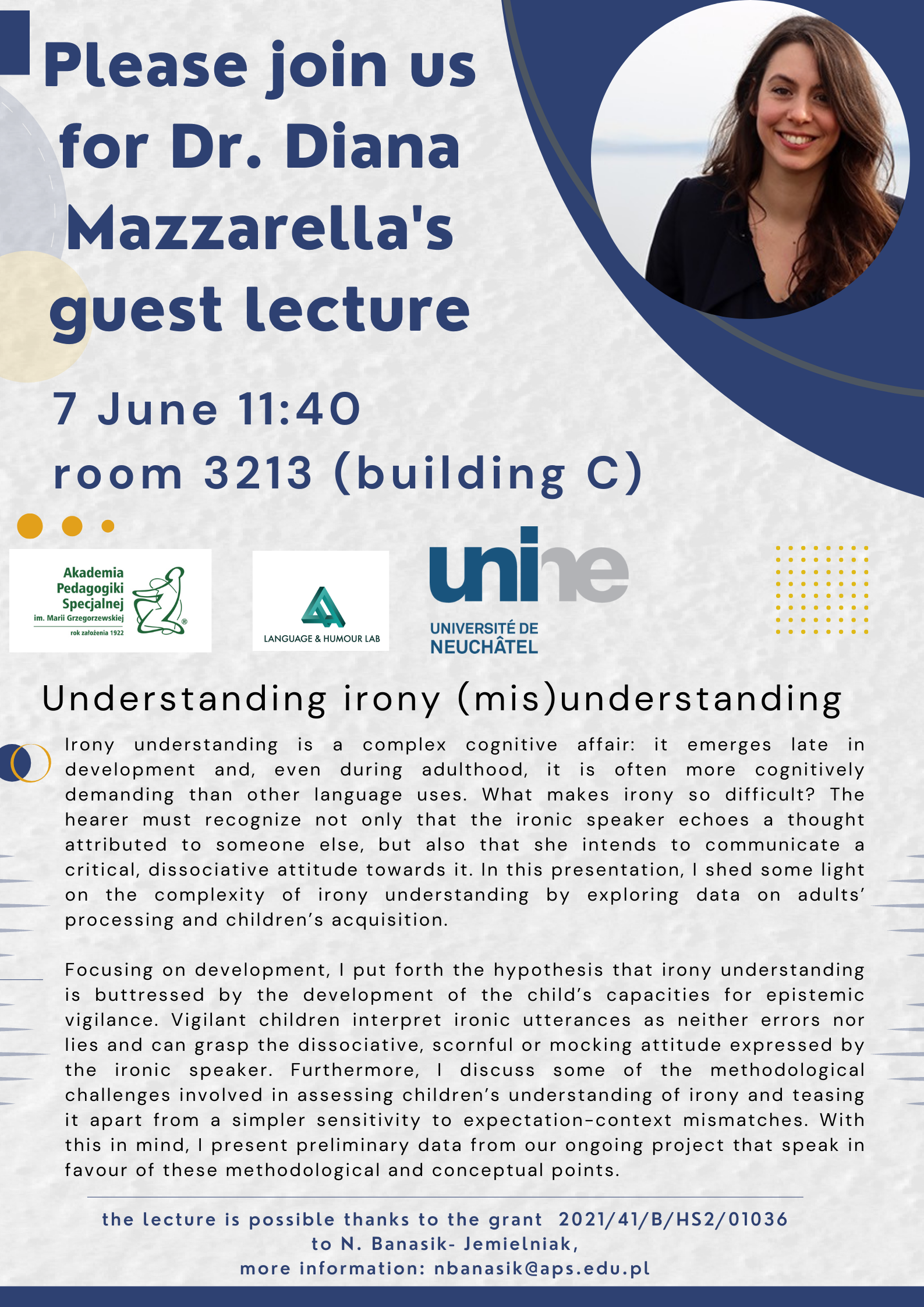"Irony understanding is a complex cognitive affair: it emerges late in development and, even during adulthood, it is often more cognitively demanding than other language uses. What makes irony so difficult? The hearer must recognize not only that the ironic speaker echoes a thought attributed to someone else, but also that she intends to communicate a critical, dissociative attitude towards it. In this presentation, I shed some light on the complexity of irony understanding by exploring data on adults’ processing and children’s acquisition.
Focusing on development, I put forth the hypothesis that irony understanding is buttressed by the development of the child’s capacities for epistemic vigilance. Vigilant children interpret ironic utterances as neither errors nor lies and can grasp the dissociative, scornful of mocking attitude expressed by the ironic speaker. Furthermore, I discuss some of the methodological challenges involved in assessing children’s understanding of irony and teasing it apart from a simpler sensitivity to expectation-context mismatches. With this in mind, I present preliminary data from our ongoing project that speak in favour of these methodological and conceptual points."
 PL
PL



